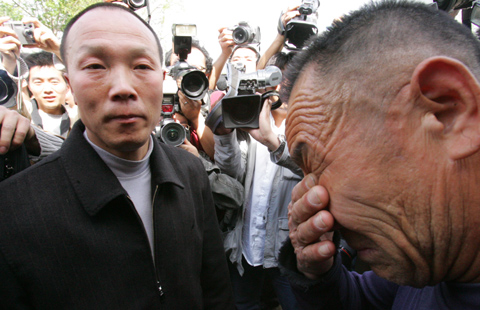Internet regulation should have force of law: experts
Updated: 2014-11-22 08:33
By Cao Yin in Wuzhen, Zhejiang(China Daily)
|
||||||||
Rules governing the Internet should be upgraded into laws to protect the privacy of netizens, improve the development of the network and reduce the number of online attacks, experts said at an international conference.
Enhancing the development of the Internet and preventing cyberthreats through international cooperation were hot issues among industry giants from a range of countries at the first World Internet Conference in Wuzhen, Zhejiang province.
Zhou Hanhua, a researcher at the Chinese Academy of Social Sciences, called for China's top legislature to accelerate the introduction of a law to protect personal information.
The current rules covering privacy protection cannot prevent hackers obtaining confidential information about Internet users, he said.
"I think it is time for our legislators to upgrade these rules to laws, clarifying what information is private and how privacy can be legally protected," he said. "Lawmakers should seek ideas from Internet users."
Hans-Rudolf Thomann, a cybersecurity and international standards expert from Switzerland, said privacy should be protected through both legal and technological means.
"We need better security standards," Thomann said. "Online verification is important, and international conventions and governance are also necessary to solve the problem."
Alamusi, deputy director of the Committee on Political and Legal Affairs at the China Electronic Commerce Association, said China needs a better legal system to govern cyberspace and regulate behavior online.
Alamusi confirmed that the legislature is considering introducing a law on e-commerce.
"The better the legal protection, the more quickly the e-commerce industry will develop," he said, though he added that an e-commerce law may still be three years away.
Delegates at the three-day conference discussed what kinds of material should be banned on the Internet, and also considered ways to combat online attacks.
Wang Sixin, a law professor at the Communication University of China, said companies that distributed information should have obtain a license. Failure to comply would lead to tighter controls on access to the industry.
Slanderous claims and information about cults and terrorism may not be distributed on the Internet under the current rules, he said, but he added that the list of banned material should be updated.
James Andrew Lewis, senior director of the Center for Strategic and International Studies, said each nation should take responsibility for tackling the increasing number of online attacks around the world while trying to seek a consensus.
"All countries should introduce their own laws, as well as abide by international conventions," he added.
caoyin@chinadaily.com.cn

 Sports moments of the week: Nov 17-23
Sports moments of the week: Nov 17-23
 42nd American Music Awards held in Los Angeles
42nd American Music Awards held in Los Angeles
 A retrospection of righted wrongs
A retrospection of righted wrongs
 Top 10 kinds of foreigners in China
Top 10 kinds of foreigners in China
 Anxious Ferguson waits for grand jury's decision
Anxious Ferguson waits for grand jury's decision
 Mascots from Olympic, Paralympic games arrive in Rio
Mascots from Olympic, Paralympic games arrive in Rio
 China's boxer Zou Shiming defeats unbeaten Thai
China's boxer Zou Shiming defeats unbeaten Thai
 Mountains echo to the sound of music
Mountains echo to the sound of music
Most Viewed
Editor's Picks

|

|

|

|

|

|
Today's Top News
US aids in return of economic fugitives
80% of China's rich aspire to overseas education
International luxury hotels expand in China
Disney, SMG expand partnership
LA mayor visits Beijing
Subway-push victim mourned in Chinatown
China, Pacific island nations boost ties
Media reveals aircraft carrier base spying case
US Weekly

|

|







